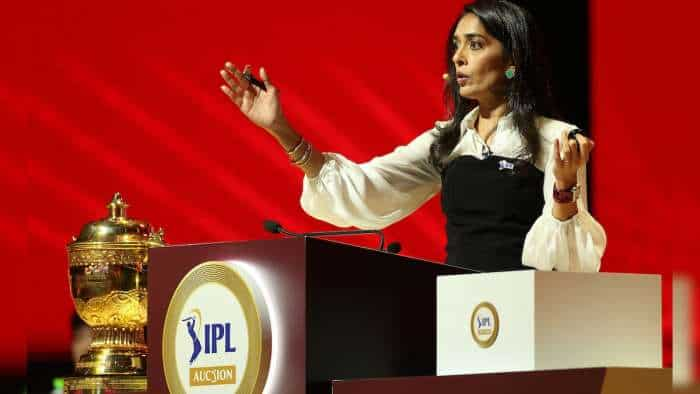Car makers may hike prices soon with rise in GST cess from today
The GST Council's decision on increasing the cess on mid-size, large cars and SUVs will be implemented today as announced by CBEC.

Key highlights:
- Car makers are expected to pass this hike to consumers in the form of a price hike soon
- GST Council approved increase the GST cess on mid-size cars, large cars and SUVs
- Mahindra and Mahindra, Toyota Kirloskar Motor, Audi, Mercedes-Benz and JLR India are planning to pass on the increased cess
With the hike in the goods and service tax (GST) cess on mid-size cars, large cars and SUVs being implemented on Monday following the GST Council's decision, the car makers are expected to pass this hike to consumers in the form of a price hike.
The GST Council on Saturday announced that it will increase the GST cess on mid-size cars, large cars and SUVs by 2%, 5% and 7%, respectively. This would take the total taxes (GST + Cess) to 45%, 48% and 50% for these three segments.
While car makers would increase the prices of their vehicles, considering that they had reduced the prices of the cars post GST roll-out in July to pass on the benefit to customers. The question remains how soon can the prices of the cars be expected to be increased.
However, this comes as a relief to many car makers as the previous GST cess was for all cars above 4 meters, which would mean the mid-size cars, large cars and SUVs would incur the same increase of 10% on GST cess as for luxury cars.
Already automakers such as Mahindra and Mahindra, Toyota Kirloskar Motor, Audi, Mercedes-Benz and JLR India are planning to pass on the increased cess on mid-sized and large cars along with SUVs, after the GST Council's decision to raise it by up to 7%.
The companies said the constant changes in rates could lead to market instability and affect demand growth trends, expressing disappointment that the Council's decision "totally overlooked" their contribution to the industry and the economy.
"Following the ordinance on the GST amendment, we note the increase in the cess from 2-7 % on mid-, large- sized cars and SUVs. We see the prices of our products going up proportionately, which may nearly reflect the pre-GST scenario... However, we are ascertaining the real price impact on our models, given the cess hike," Toyota Kirloskar Motor Vice-Chairman and Whole-time Director Shekar Viswanathan said in a statement.
"These constant changes could lead to market instability and thus dampen the spirits of the industry across the entire value chain," Viswanathan added.
Mahindra and Mahindra MD Pawan Goenka said, "We are awaiting the exact definition of the categories. Whatever is the impact of the increased cess will reflect in the revised pricing from the effective date."
He further said, "We are grateful that the Council has very thoughtfully not raised the cess to the maximum level that had been enabled by the ordinance."
The Council has basically restored pre-GST relative excise duty differentials between the various categories of vehicles. The hybrid vehicle cess has not been increased, effectively giving these vehicles a 2-7% cess relief, he added.
According to BMW Group India President Vikram Pawah, while the company welcomes the implementation of the GST in India, immediate changes and increase of motor vehicles cess adversely affect stability and growth of the automotive industry in India.
Luxury carmakers like Audi, Mercedes-Benz and JLR India have also expressed disappointment over the GST Council's decision to hike cess on mid-sized and large cars and SUVs by up to 7%.
The Council, however, kept rates on small cars and hybrid vehicles unchanged, which were approved when GST was implemented in July.
Reacting to the hike in cess, Audi India Head Rahil Ansari said, "Even if the rumoured cess hike of 10% was not concluded, the prices will go up again, which is disappointing. We will need to study the impact of this hike on the buyer sentiment."
He further said the taxes on the auto industry are already very high and "we expected the unfulfilled potential of this segment to increase after the implementation of GST and rationalisation of taxes".
Expressing similar views, Mercedes-Benz India MD and CEO, Roland Folger said, "The decision to increase the cess yet again is very unfortunate and totally overlooks the contribution we make to the industry and the economy.”
“Though the luxury car industry's volume contribution is very low, the value-wise share is much higher and that has immense potential to grow even more in future if there is "fair taxation", he said.
On the impact on prices of vehicles, he said, "With this increase in cess now, the prices are bound to leap back to the pre-GST regime, in some cases higher than the pre-GST regime, thus negating altogether the benefits of GST regime."
Jaguar Land Rover India President and MD Rohit Suri said, "While the increase in cess will impact consumer demand, investment and job creation, we are glad that the government and the GST Council took note of our concerns and somewhat moderated the increase in cess."
Under the new rates, popular mid-sized cars like Honda City, Maruti Suzuki Ciaz petrol and the newly launched Hyundai Verna will see price increase by 2%.
Similarly, luxury cars such as BMW 3, 5 and 7 series, Audi A3, A4, A6 and A8 along with Mercedes C Class, E Class and S Class will now get more expensive by 5%.
SUVs, starting from Scorpio and XUV500 from the stable of Mahindra and Mahindra, Renault Duster, Toyota Fortuner to luxury ones like Land Rover Discovery, Audi Q3, Q5 and Q7, BMW X3 and X5, along with Mercedes GLA, GLC and GLS will all see prices going up by 7%.
In the earlier approved rates, large cars with engine greater than 1,500 cc and SUVs with length more than 4 metres and engine greater than 1,500 cc attracted cess of 15%.
(With inputs from PTI)
ALSO READ:
Get Latest Business News, Stock Market Updates and Videos; Check your tax outgo through Income Tax Calculator and save money through our Personal Finance coverage. Check Business Breaking News Live on Zee Business Twitter and Facebook. Subscribe on YouTube.
RECOMMENDED STORIES

IPL Auction 2025 Free Live Streaming: When and where to watch Indian Premier League 2025 mega auction live online, on TV, Mobile Apps, and Laptop?

SIP vs PPF: How much corpus you can build in 15 years by investing Rs 1.5 lakh per year? Understand through calculations

SBI Senior Citizen Latest FD Rates: What senior citizens can get on Rs 7 lakh, Rs 14 lakh, and Rs 21 lakh investments in Amrit Vrishti, 1-, 3-, and 5-year fixed deposits
12:31 PM IST








 From walnuts to computer monitors: 40 items that will be cheaper due to cut in GST rates
From walnuts to computer monitors: 40 items that will be cheaper due to cut in GST rates Hike in GST cess of mid, large cars, SUVs to take effect from tomorrow
Hike in GST cess of mid, large cars, SUVs to take effect from tomorrow Here are the extended due dates for filing returns for GST
Here are the extended due dates for filing returns for GST Finance Ministry considering auto makers concern on hike in GST cess
Finance Ministry considering auto makers concern on hike in GST cess Govt notifies hike in GST cess on mid, large cars to 25%
Govt notifies hike in GST cess on mid, large cars to 25%